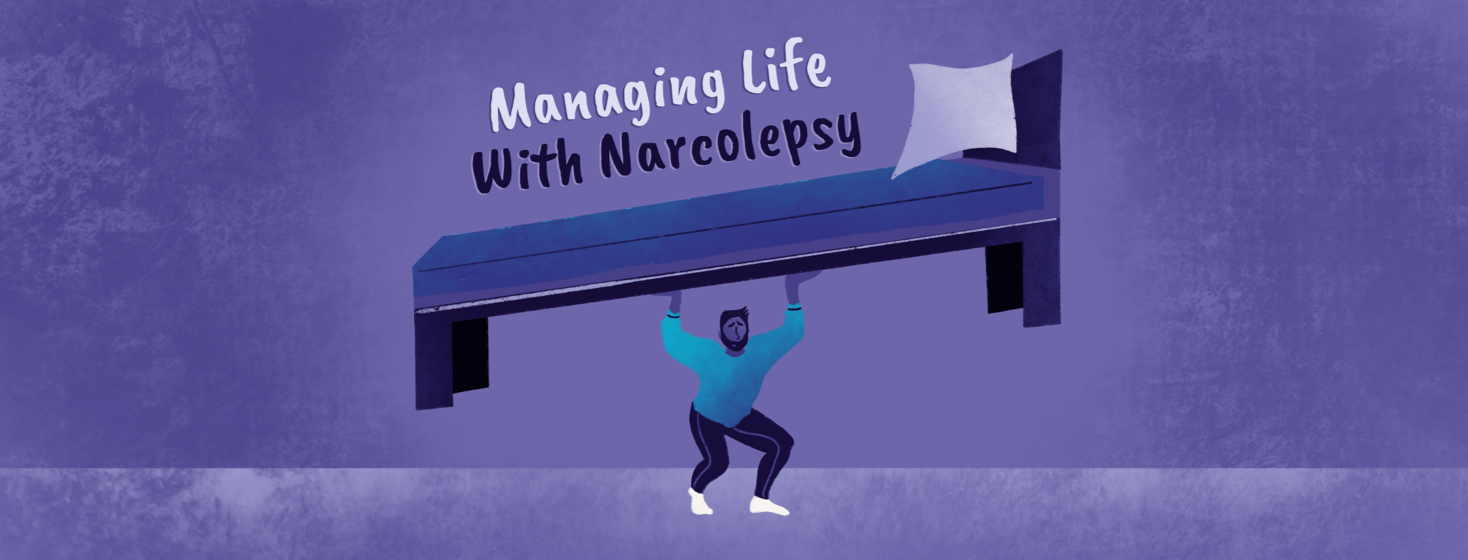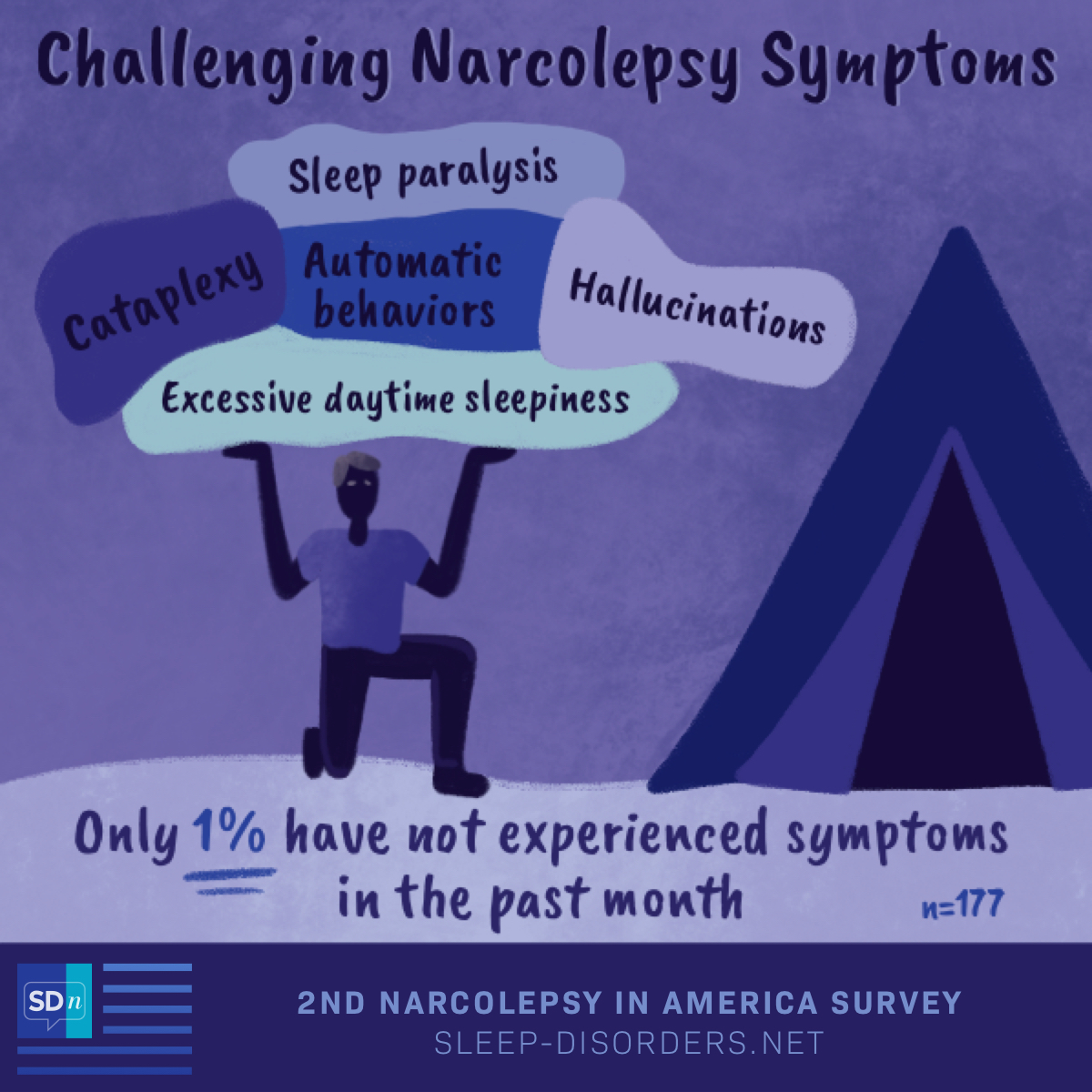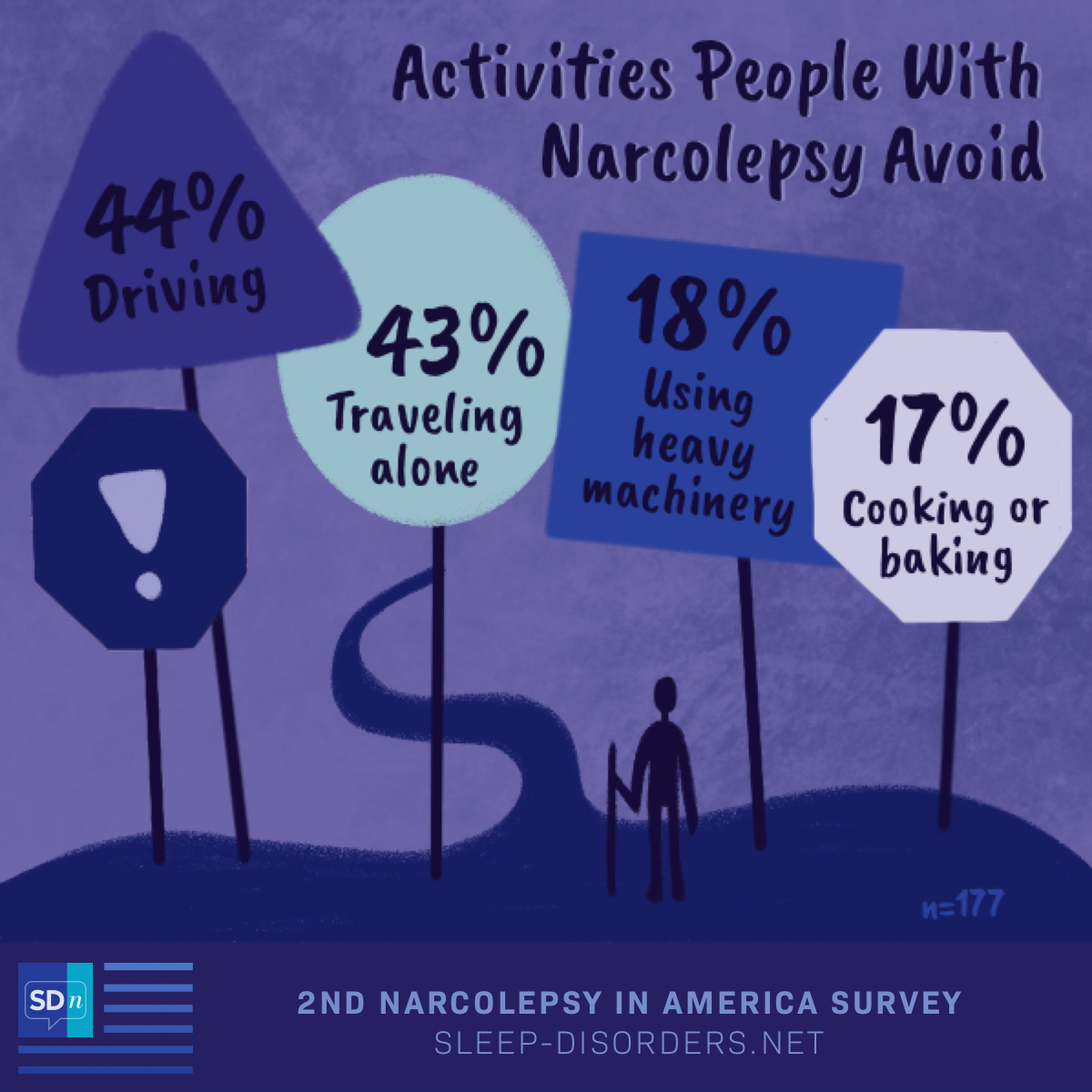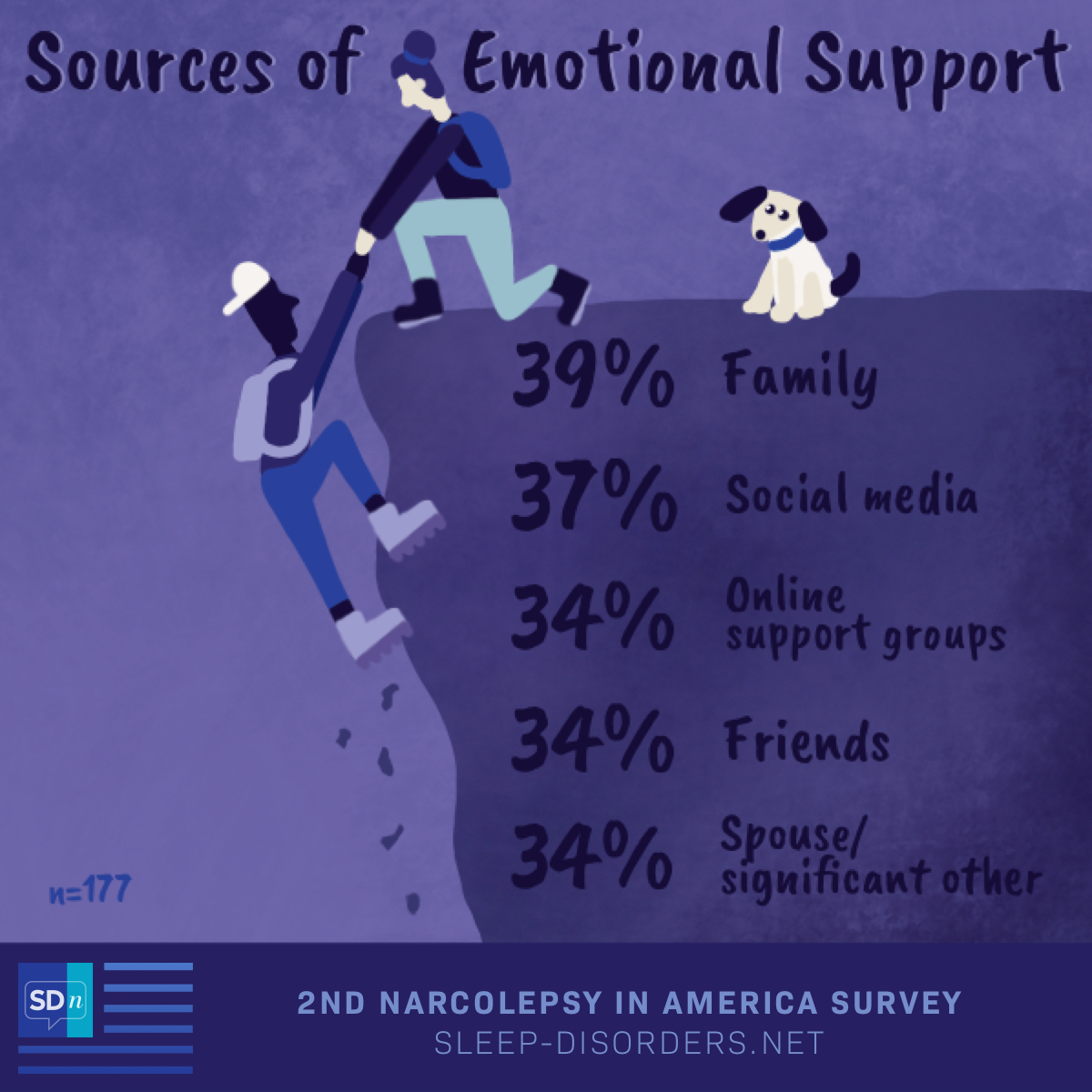How Do Narcolepsy Symptoms Affect Daily Life? 2nd Sleep Disorders In America Survey Results
Are there words that fully convey the feeling of overwhelming sleepiness? How do you describe what cataplexy feels like to someone who has never experienced it?
Narcolepsy symptoms like sleep attacks, cataplexy, hallucinations, and automatic behaviors can have a major impact on daily life. In our 2nd Sleep Disorders In America Survey, we asked people living with narcolepsy to share what life with narcolepsy is really like – what symptoms affect them the most, what activities they avoid, and where they find support.
Narcolepsy symptoms are hard to describe
Because narcolepsy is a rare disease affecting about 3 million people worldwide, its symptoms are not well-known or understood by most people. Proper diagnosis can take years because symptoms may go unrecognized or misdiagnosed, even by doctors.1,2
Adding to this frustration, common narcolepsy symptoms seriously disrupt daily activities at school, work, and home. When family, friends, coworkers, and partners see us struggling, they often do not understand the deeper physical, emotional, and mental toll that symptoms take.
Putting safety first
Narcolepsy symptoms are unpredictable. Cataplexy is typically triggered by strong emotions, including stress. Hallucinations, vivid dreams, and sleep paralysis are beyond our control.
Taking scheduled naps can be helpful. Survey results show that 46 percent* respondents often have to adjust their schedule to accommodate a nap during the day. But even with nap schedules and medicines, sometimes the effects of excessive daytime sleepiness means a sleep attack may strike at any time.
Living with narcolepsy can mean avoiding certain activities that present too much risk or danger. About 76 percent of people surveyed experienced difficulty concentrating in the past month. This can make it hard to focus and complete a task. Giving up some aspects of daily life is not easy. It can feel like losing some independence.
Tapping into a network of support
Living with a lifelong, complicated condition like narcolepsy is a journey that does not have to be navigated alone. Two-thirds of people surveyed* feel that narcolepsy negatively impacts their professional life, and 64 percent* feel it has a negative impact on their social life. Some people rely on a support system to help get through these challenges.
Fortunately, these days virtual support groups and online connectivity means that people around the world living with narcolepsy can connect with each other and offer support, advice, and encouragement. Virtual connections are especially meaningful when it is uncommon to have met other people living with narcolepsy.
Managing narcolepsy symptoms
For a lot of people, managing narcolepsy means finding an effective treatment plan to reduce the daily impact of symptoms. But this is easier said than done. Only 11 percent* of people surveyed feel their narcolepsy is well-controlled.
In our search for effective treatments, we rely on healthcare professionals like sleep specialists, family doctors, and neurologists to help us manage. More than 90 percent of people survey regularly see a doctor for their narcolepsy, and nearly 7 out of 10 people* feel their doctor takes their symptoms seriously.
Staying informed, getting connected
As narcolepsy treatment options continue to evolve, the narcolepsy community is paying attention to research developments. More than 90 percent of people surveyed use resources to learn about or help manage their narcolepsy, and 55 percent identified scientific research as a top area of interest.
If you are interested in staying up-to-date on the latest news, reading about others' experiences living with narcolepsy, and sharing tips and advice, sign up for our free weekly newsletter. The road ahead may feel uncertain at times, but you are not alone on your journey.
The 2nd Sleep Disorders In America Survey was conducted online from May 2021 through August 2021. Of the 1,890 people who completed the survey, 177 were narcolepsy respondents
*Top 2 responses on 7-point scale




Join the conversation